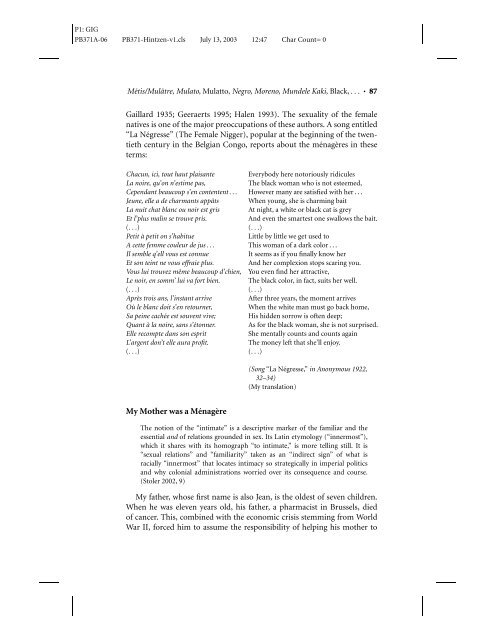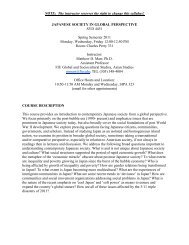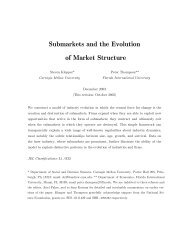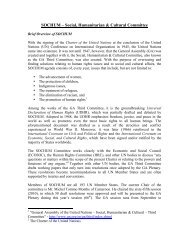Métis/Mulâtre, Mulato, Mulatto, Negro, Moreno, Mundele Kaki, Black
Métis/Mulâtre, Mulato, Mulatto, Negro, Moreno, Mundele Kaki, Black
Métis/Mulâtre, Mulato, Mulatto, Negro, Moreno, Mundele Kaki, Black
You also want an ePaper? Increase the reach of your titles
YUMPU automatically turns print PDFs into web optimized ePapers that Google loves.
P1: GIG<br />
PB371A-06 PB371-Hintzen-v1.cls July 13, 2003 12:47 Char Count= 0<br />
<strong>Métis</strong>/<strong>Mulâtre</strong>, <strong>Mulato</strong>, <strong>Mulatto</strong>, <strong>Negro</strong>, <strong>Moreno</strong>, <strong>Mundele</strong> <strong>Kaki</strong>, <strong>Black</strong>, ... . 87<br />
Gaillard 1935; Geeraerts 1995; Halen 1993). The sexuality of the female<br />
natives is one of the major preoccupations of these authors. A song entitled<br />
“La Négresse” (The Female Nigger), popular at the beginning of the twentieth<br />
century in the Belgian Congo, reports about the ménagères in these<br />
terms:<br />
Chacun, ici, tout haut plaisante Everybody here notoriously ridicules<br />
La noire, qu’on n’estime pas, The black woman who is not esteemed,<br />
Cependant beaucoup s’encontentent... However many are satisfiedwithher...<br />
Jeune, elle a de charmants appâts When young, she is charming bait<br />
La nuit chat blanc ou noir est gris At night, a white or black cat is grey<br />
Et l’plus malin se trouve pris. And even the smartest one swallows the bait.<br />
(...) (...)<br />
Petit à petit on s’habitue Little by little we get used to<br />
Acettefemmecouleurdejus... Thiswomanofadarkcolor...<br />
Il semble q’ell vous est connue Itseemsasifyoufinally know her<br />
Et son teint ne vous effraie plus. And her complexion stops scaring you.<br />
Vous lui trouvez même beaucoup d’chien, You even find her attractive,<br />
Le noir, en somm’ lui va fort bien. The black color, in fact, suits her well.<br />
(...) (...)<br />
Après trois ans, l’instant arrive After three years, the moment arrives<br />
Où le blanc doit s’en retourner, When the white man must go back home,<br />
Sa peine cachée est souvent vive; His hidden sorrow is often deep;<br />
Quant à la noire, sans s’étonner. As for the black woman, she is not surprised.<br />
Elle recompte dans son esprit She mentally counts and counts again<br />
L’argent don’t elleauraprofit. The money left that she’ll enjoy.<br />
(...) (...)<br />
My Mother was a Ménagère<br />
(Song “La Négresse,” in Anonymous 1922,<br />
32–34)<br />
(My translation)<br />
The notion of the “intimate” is a descriptive marker of the familiar and the<br />
essential and of relations grounded in sex. Its Latin etymology (“innermost”),<br />
which it shares with its homograph “to intimate,” is more telling still. It is<br />
“sexual relations” and “familiarity” taken as an “indirect sign” of what is<br />
racially “innermost” that locates intimacy so strategically in imperial politics<br />
and why colonial administrations worried over its consequence and course.<br />
(Stoler 2002, 9)<br />
My father, whose first name is also Jean, is the oldest of seven children.<br />
When he was eleven years old, his father, a pharmacist in Brussels, died<br />
of cancer. This, combined with the economic crisis stemming from World<br />
War II, forced him to assume the responsibility of helping his mother to

















